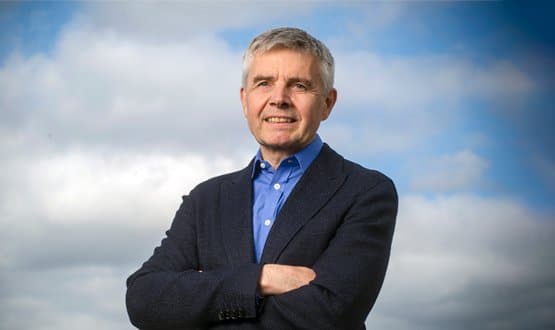Lord Drayson steps down as CEO of Sensyne Health
- 12 April 2022

The founder and CEO of Sensyne Health has stepped down from his role after the company was able to secure funding which will allow it to continue trading.
The data analytics company confirmed that Lord Paul Drayson “has agreed to step down from the board with immediate effect”, adding that Alex Snow has been appointed as his immediate successor. Snow recently stepped down as chairman of AI drug discovery company Exscientia.
Established in 2018, Sensyne Health uses AI algorithms to analyse healthcare data to help speed up the development of new medicines by pharmaceutical companies. As well as shares in the companies, trusts also receive annual payments for investment in IT to help aid the curation and analysis of the data, plus royalties on revenues generated by the company off the back of the research undertaken as part of Strategic Research Agreements (SRAs).
Trusts who have signed non-exclusive SRAs with Sensyne Health include Cambridge University Hospitals NHS Foundation Trust, Great Ormond Street Hospital for Children, which marked the first time Sensyne had focused on paediatrics, and the Royal Devon and Exeter NHS Foundation Trust.
In total, the company has 16 SRAs with NHS trusts and US healthcare health systems and a real-world database of 48.3million patient records, including anonymised records of 12.9million UK patients.
In a statement published on the company’s website, Lord Drayson said it had been a “privilege to build Sensyne Health”.
His successor, Snow, added: “I am looking forward to working with this team and cementing our relationships with our NHS Trust partners as we build out our platform and accelerate our capability to support the life sciences industry in driving value from this real-world patient data.”
Securing funding for the future
The news of the changes at the company follow reports in January 2022 that Sensyne Health’s board had said that unless the company was able to secure emergency funding it is “unlikely to be able to continue to trade beyond early February 2022”.
Since then, the company has revealed that it has managed to secure up to £15million in funding which is part of a note purchase agreement with Gatemore Capital Management LLP, Lansdowne Partners LLP, Sand Grove Capital Management LLP and Peel Hunt LLP.
Snow will take up the role of CEO at Sensyne Health once this funding has been completed, which is expected to be within ten days.
Bruce Keogh, chairman of Sensyne Health, said he was “grateful” for the financial support the company had received “despite the difficulties the business has faced over the past few months”, adding that the funding provides “certainty of a future for Sensyne”.
He concluded: “We are pleased to welcome Alex Snow, whose experience in life sciences AI and capital-raising credentials will be invaluable as he leads Sensyne through the next stage of its development.
“The board wishes to thank Lord Drayson for his tireless commitment to the company and its aim to realise the potential of clinical AI to revolutionise healthcare in partnership with the NHS and international health systems. His vision has set the standard for how healthcare providers like the NHS can benefit from the analysis of health data in a transparent, ethical and fair way.”





1 Comments
You would have thought that Bruce Keogh would have had more sense than to get involved with a company that had been fined by the Stock Exchange and whose products had all failed in clinical trials.
So it has burned through £150m now?
Sounds like a pump and dump!
Comments are closed.